Gemma Roe has a vision that can change the future of housing while restoring our connection with the natural environment.
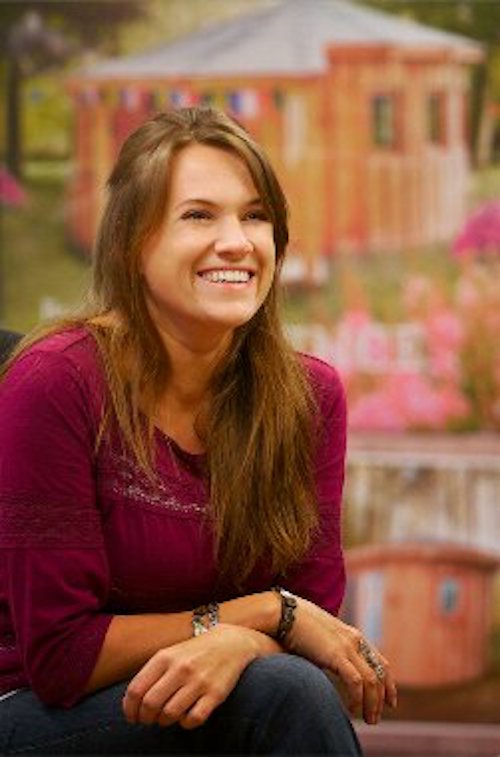
Gemma Roe
Imagine living in a beautiful space that enhances your well-being? Gemma Roe is on a mission to make circular dwellings an affordable, sustainable and eco-conscious reality. The spatial designer started Cheshire based Rotunda Roundhouses in 2012 and people are discovering that ‘the round’ is the perfect space to be, and that life’s too short to be boxed in.
I'd got to a point in my life where my career (in finance and operations management) was bringing in a good income but wasn't fulfilling. I'd made the decision that I wanted to spend the rest of my working life doing something meaningful. One of the areas I was passionate about was environmentally focused commercial interior design / architecture. So when I was 27, I returned to study for three years to become a spatial designer with a particular emphasis on environmental design. I secured my first role in this industry as a marketing and design director for EcoHab, an eco-homes company, who built small steel-framed dome-shaped eco homes. This really kick-started my passion for round buildings.
When I became pregnant with my first child, Esmee, in 2011, I resigned from my position and spent my pregnancy designing my vision of a circular eco-building, which I believed could enhance well-being and solve some societal and environmental problems. The prototype was built and tested a year later, and culminated in the formation of Rotunda Roundhouses. Together with my friendly and highly experienced team, we design and build handmade and bespoke timber framed modular eco-buildings that are fully functional with excellent thermal dynamics and amazing aesthetics. Whatever you can imagine, we can build -as long as it’s round, of course!
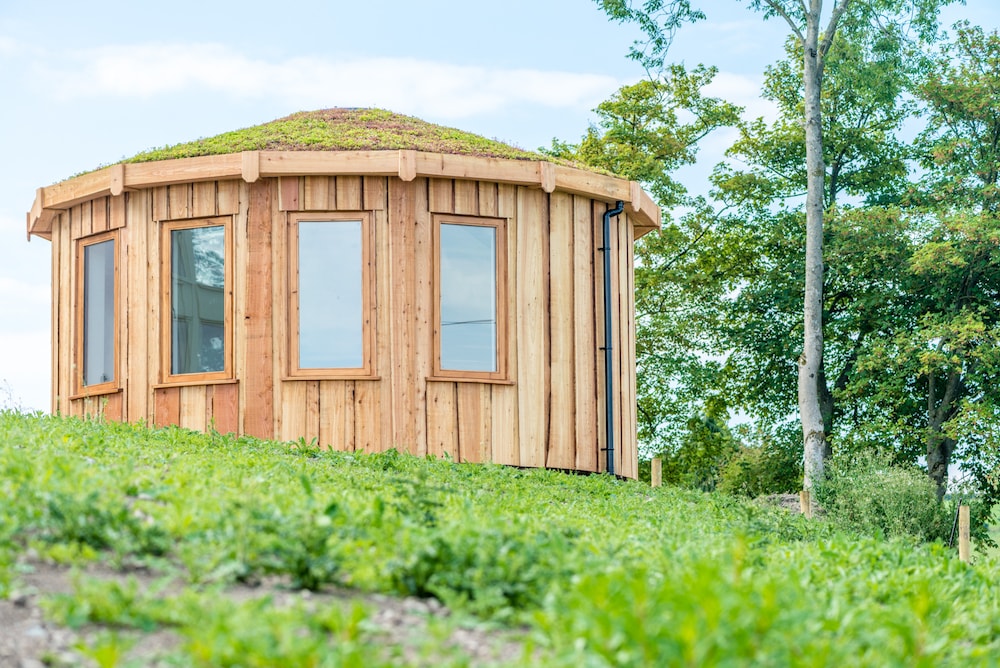
Rotunda Roundhouse
The round is a familiar and soothing shape. It's the symbol of unity and, geometrically, the parent of all subsequent shapes. When you look closely, you'll find the circle everywhere. From birds nests to the cup of an acorn or a ripple on a still pond, the circle is especially ubiquitous in nature.
Our ancestors knew the significance of the round. They built beautiful round homes such as yurts, igloos, wigwams and tipis. The roundhouse has been with us since the dawn of our civilisation. The oldest man-made structure is a roundhouse called ‘New Grange’. It was discovered in Ireland and is thought to have been constructed about 5,200 years ago. This pre-dates the Egyptian pyramids. In Britain, roundhouses were the standard form of housing from the Bronze Age through to the Iron Age, providing comfortable shelter for our ancestors. The beautiful simplicity of roundhouses was lost for many years. I believe it's time for a resurgence!
From a building perspective, the round offers so many benefits. They are easy to build, resource efficient and provide the greatest structural strength than any other form (alongside Pyramids). There is a natural flow within a circular space, and the thermal dynamics are optimised, which means air and heat circulate naturally and efficiently.
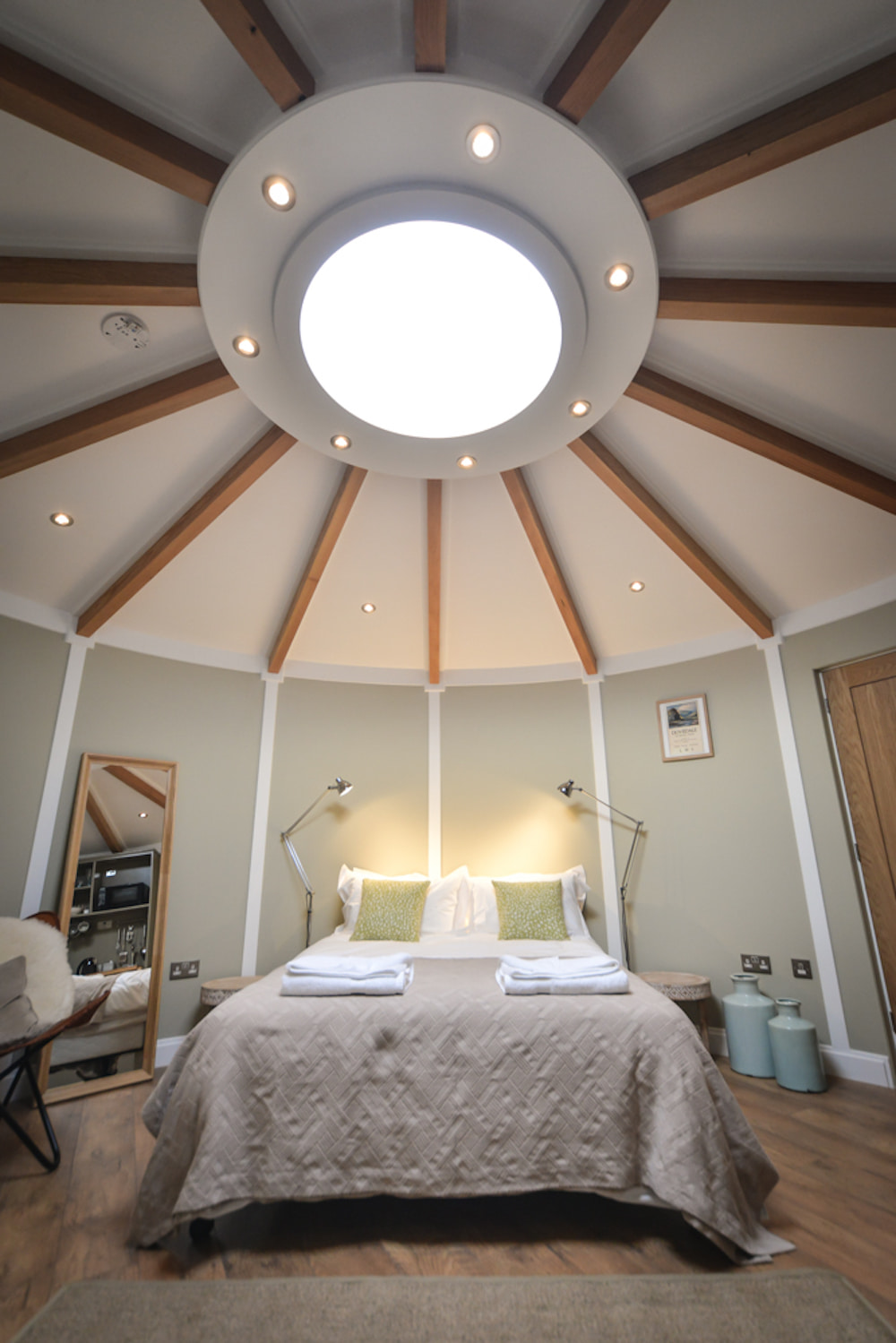
Roundhouse interior
Well, we are deeply passionate about round structures and are the only company in the UK who build exclusively in the round. As our strap-line states, the Rotunda is more than just a building, it's a philosophy.
We are greatly motivated by the fact that we are part of an evolutionary process. More people are choosing to reside and work in holistic, natural and organic shaped environments rather than the traditional brick or concrete box. Buildings are an integral part of our everyday life and they should be designed to serve us, enhance our well-being and protect and celebrate our heritage and natural world.
Through our passion for the round, the environment and well-being, we take a holistic approach to designing and building beautiful, quality, high performance circular buildings that sit unobtrusively in the natural environment.
The Rotunda appeals greatly to people looking for a creative and inspirational space for their work or as a viable and affordable alternative to a traditional home or home extension. We have built roundhouses for artists, yogis, therapists, musicians, home-workers and entrepreneurs. Some of our buildings can be found on luxury glamping sites and yoga retreats in the UK and France. We also build innovative early-years environments for schools and nurseries. And it’s with great excitement that we are now working on several larger-scale eco-home developments, which could form part of an eco-village.
Environmental psychologists know that our environment affects us on multiple levels. We've evolved over the past 2.8million years in natural landscapes. It's only been in the past thousand years that we've made our homes and work places in permanent structures. Architects and designers have long been aware about sick-building syndrome (whereby occupants of poorly designed buildings suffer with ailments and reduced productivity in the workplace). With each generation, there is an acceleration in the rapid decline of our overall connection to nature. I can't help but feel that a return to living in healthy and sustainable eco-buildings, and fostering a deeper connection with the natural environment, is the way forward.
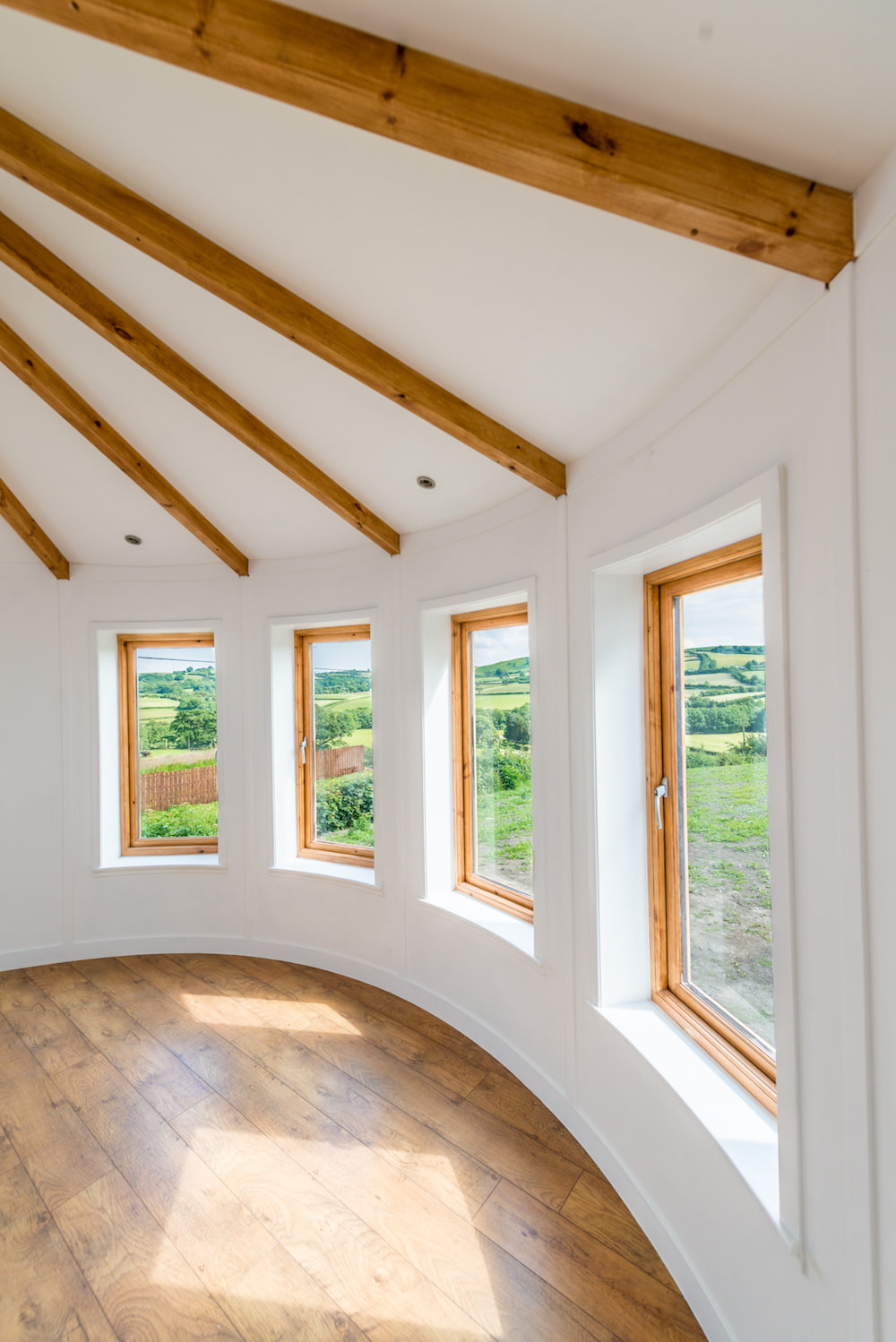
Roundhouse interior
Many of our clients regard the Rotunda as ‘healing spaces’. They remark on feeling soothed but uplifted, calm and nurtured, warm and invigorated simply from being in the round.
People who stay in a roundhouse say they are reluctant to leave. Most notably, it seems to have a calming, restful but equally refreshing effect. Feng Shui practitioners have alluded to this being down to the absence of negative chi whereby the lack of corners allows positive energy to circulate easily. I believe that there could be some truth to this.
Absolutely! There are so many advantages to building in the round for contemporary homes. Apart from the environmental and affordability factors, the roundhouse has an aesthetic that offers many psychological benefits. It’s such an inspiring, versatile and natural space that offers so many options. I believe that living in a roundhouse can improve the quality of life, particularly for the most vulnerable in society.
It's a travesty that very few people have the opportunity to build their own low-impact homes. Most housing developments are run by large-scale house builders who place profit before people, building with toxic materials and energy-intensive bricks/blocks and concrete. It's simply not necessary.
At Rotunda Roundhouses, we show there is a better way.
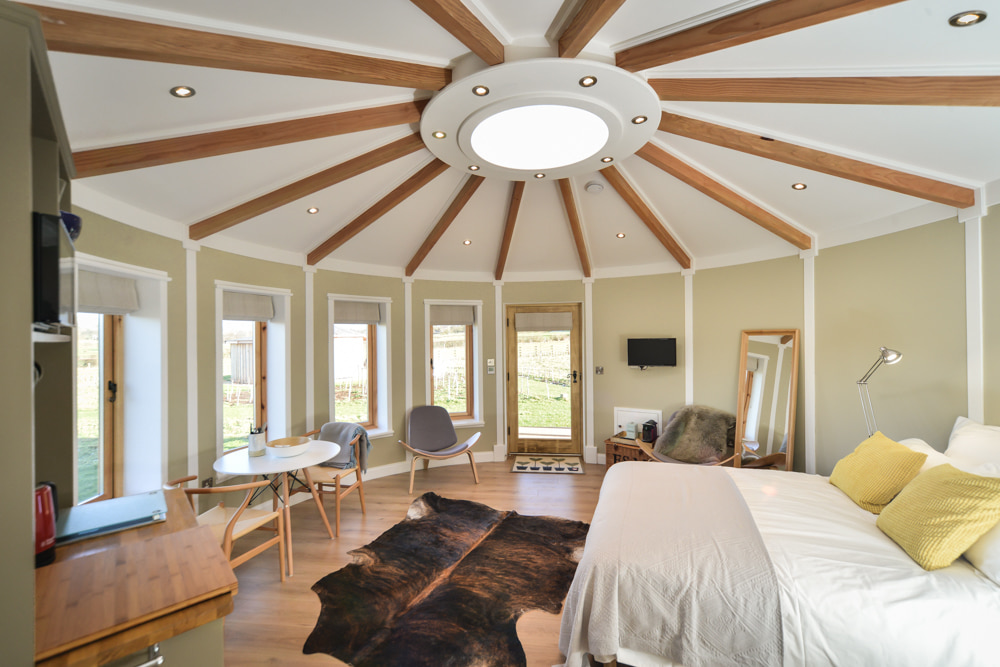
Roundhouse interior
We’re passionate about creating sustainable modular eco-buildings that improve well-being, and are motivated to inspire others to think seriously about the type of building they choose to live and work in and the type of world they'd like to create. I hope that we can move forward with a renewed determination to live holistically and in tune with the natural world rather than continue down this downward spiral into environmental catastrophe and ecological collapse.
If we can play a small part in this evolution and assist in the creation of UK eco-villages and sustainable housing developments (which work alongside rural retreat centres and hospice/care/rehabilitation centres) that would be a major element of my vision fulfilled.
To find out more about Rotunda Roundhouses, visit rotunda.co.uk.

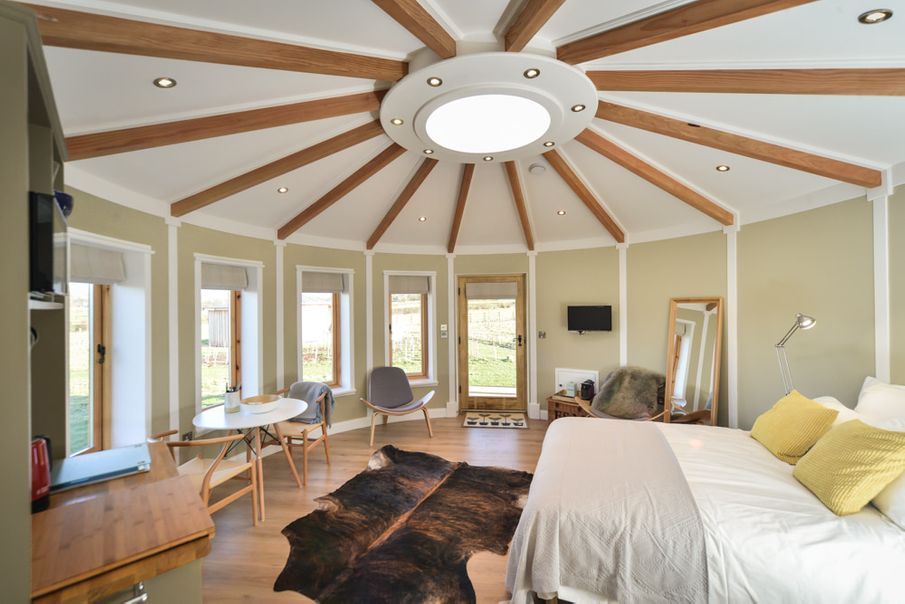
Comments